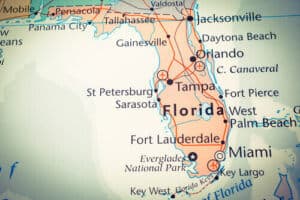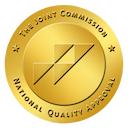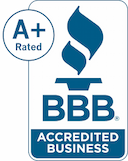Alcohol & Drug Rehab Center Near Tampa
Between 2015 and 2019, fatal opioid overdose rates in the Tampa Bay region consistently exceeded those within the state and across the country.1 And in the wake of the recent global pandemic, these rates have skyrocketed.2 Experts cite the spread of fentanyl as a contributing factor behind this alarming trend.3
Fortunately, for those struggling with drug or alcohol use and misuse, there is effective addiction treatment in Tampa.

Addiction Treatment & Recovery Near Tampa
Drug & Alcohol Rehab Facility in Tampa
Central Florida Behavioral Health Network is Hillsborough County’s not-for-profit local provider of mental health and substance abuse services. The Behavioral Health Treatment Services Locator hosted by the Substance Abuse and Mental Health Services Administration (SAMHSA) also lists treatment facilities by type and location to facilitate easy online treatment searches.
River Oaks Treatment Center in Hillsborough County is one such facility available for those in the Tampa area who need treatment. River Oaks offers a full range of substance abuse treatment services from inpatient medical detox to outpatient treatment services.
Types of Addiction Treatment
When it comes to addiction and treatment, each person is unique. Type and frequency of use, physical and mental health, and co-occurring disorders all play a part in determining the most effective addiction treatment plan for an individual.
The clinicians and staff at River Oaks Treatment Center know that rehab is not one-size-fits-all. Instead, they carefully assess a patient at the time of admission to ensure they receive the type of individualized treatment that will most likely result in long-term sobriety.
Treatment types available at River Oaks include:
- Medical Detox. This is often the first step in the journey to recovery. Patients receive medical supervision 24/7 to ensure they are safe and comfortable during the withdrawal process.
- Inpatient Treatment. With intensive 24/7 care, patients can fully focus on their recovery while living at the treatment facility and receiving therapy and other services.
- Intensive Outpatient Treatment. With both partial hospitalization programs (therapy six hours a day, five days a week) and intensive outpatient programs (therapy 3 hours per day, 3 times per week), outpatient therapy at River Oaks offers flexibility combined with focused care.
Getting Admitted to Rehab in Tampa
When using insurance for addiction treatment, the patient should submit coverage information to the facility at the beginning of the admission process. If a patient has no insurance, the facility will provide guidance on alternative ways to pay for rehab. This can include state-funded insurance (Medicaid/Medicare) or financing options such as a payment plan or healthcare loan.
Use our to instantly check if River Oaks Treatment Center accepts your insurance.
Getting to River Oaks from Tampa
River Oaks Treatment Center is conveniently located in Riverview, just south of Brandon, and a short drive from the Channel District, Ybor, and Hyde Park.
Via HART
From Marion Street at Estelle Street, HART will take you to Riverview. You can also view other pick up stops in Hillsborough County by clicking here.
Via Selmon Expressway
- Take E Twiggs Street to FL-618 South/Selmon Expressway.
- Take I-75 S to Gibsonton Drive. Take exit 250 from I-75 South.
- Use the left two lanes to turn onto Gibsonton Drive.
- Pass by the Wendy’s on your right.
- Continue onto Boyette Road.
- Turn left and in 0.2 miles turn right.
Via S. Tamiami Trail
- Head east toward N. Morgan Street.
- Follow Selmon Expressway/US-41 South/S. Tamiami Trail to Gibsonton Drive.
- Merge onto FL-618 E/Selmon Expressway.
- Take exit 11 to merge onto US-41 South.
- Use the left two lanes to turn onto Gibsonton Drive.
- Pass by the Wendy’s on your right.
- Continue onto Boyette Road.
- Turn left and in 0.2 miles turn right.

Addiction Self Assessment

Tampa, FL Substance Use Statistics
Substance Misuse in Tampa, FL
According to the Florida Department of Health, in 2021 Hillsborough County recorded:
- 452 opioid-related overdose deaths.
- 547 drug overdose deaths.
- 8,363 EMS responses to drug overdoses (including opioids).
Public records for 2019 in Hillsborough County indicate that:
- 17.1% of adults reported heavy drinking and binge drinking within a 30-day period.5
- 1,703 Hillsborough County residents died from alcohol-related liver disease.6
- 657 vehicle collisions involved impaired drivers.7
- There were 106,271 adult drug arrests.8
- 3,881 juveniles were arrested for drug violations.9
Across the state of Florida, residents struggle with drug and alcohol use and addiction as well. In fact, between 2017–2019 among young adults ages 18–25:10
- 34.1% used marijuana.
- 31.3% binge drank alcohol in a 30-day period.
- 10.6% had serious thoughts of suicide.
Meanwhile, the single-day count of the number of people enrolled in substance use treatment in Florida decreased from 63,287 in 2015 to 57,335 in 2019.10
Addiction treatment programs and measures can aid in the prevention of drug and alcohol abuse and overdose, provide education and treatment resources to families and individuals, and promote and sustain recovery for Tampa residents and other Floridians.
The Florida Department of Health partners with the Florida Department of Children and Families (DCF) to host the Substance Abuse and Mental Health (SAMH) Program as the state’s authority on mental health and substance abuse.
Additional Addiction Resources in Florida
For Florida residents in need of emergency resources, we offer the following:
- Find Narcan in Florida | Opioid Overdose Reversal with Naloxone
- Guide to Drug Detox Centers: Florida
In Florida, some options for addiction treatment are offered by community-based providers, overseen and managed by Florida’s Department of Children and Families (DCF). Providers must be licensed through the state to provide state-regulated services. Services include:
- Prevention.
- Crisis services.
- Detoxification.
- Assessment.
- Counseling.
- Case management.
- Residential and outpatient treatment.
- Recovery support services, which may include transitional housing, counseling, and life and parenting skills training.
A loved one can also file to have a person involuntarily committed into treatment in Florida if they are significantly impaired by substance use under the Marchman Act.
The DCF’s Substance Abuse & Mental Health Program offers public mental health services in local offices and nonprofit community mental health centers.
Addiction Prevention and Crisis Services
Below you’ll find a list of services geared specifically toward residents in Florida looking for information or help with substance use.
- The Statewide Office for Suicide Prevention and the Suicide Prevention Coordinating Council increase public awareness on the risks of suicide.
- DCF provides several hotlines to call for suicide prevention and crisis support information.
- The state hosts a list of anti-drug coalitions in Florida.
- Hillsborough County Anti-Drug Alliance (HCADA) offers resources for prevention and advocates for a drug-free community in Tampa Bay.
- Tobacco-Free Florida provides information and education regarding the dangers of tobacco, and works to prevent and curtail tobacco use.




